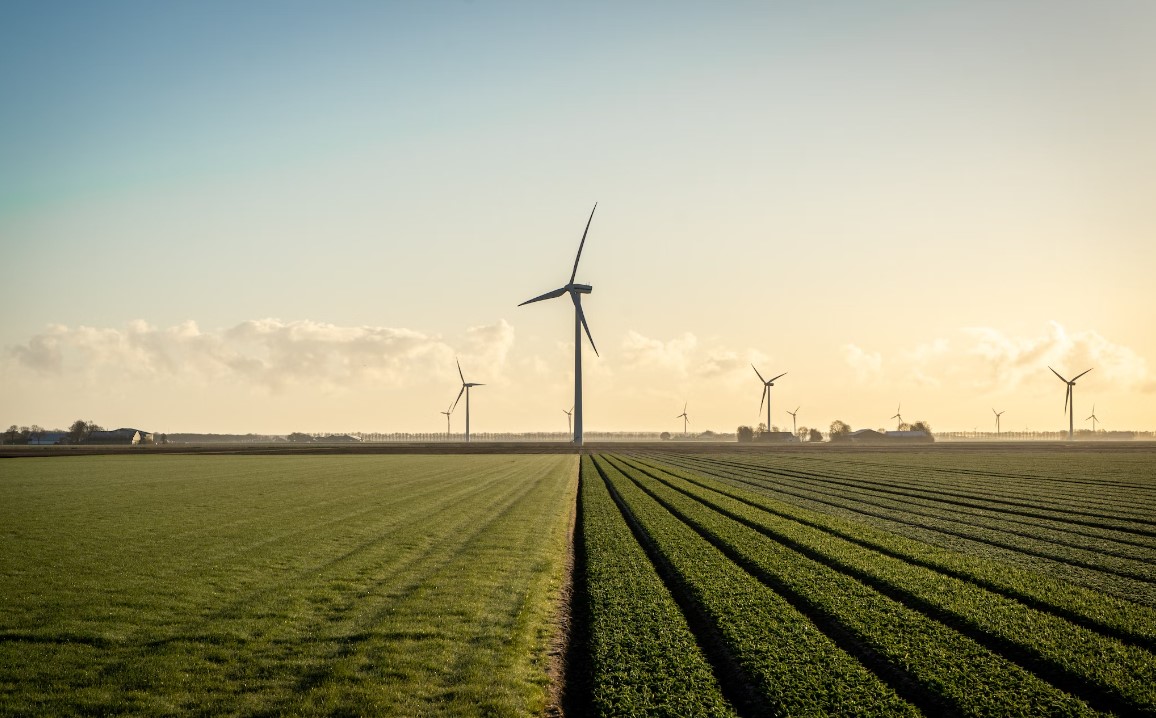
LANDSCAPE
As we found back in April, clean energy remains incredibly popular and the clean energy components of the Inflation Reduction Act are a political boon for Democrats. However, as IRA clean energy dollars are beginning to flow more readily, individual clean energy projects in the US are increasingly facing local opposition that is creating significant uncertainty and making it more difficult for developers to sign contracts with buyers and obtain financing, and for companies and governments alike to meet public demands with regards to climate goals.
To better understand voters’ attitudes towards individual clean energy projects in their own communities, Global Strategy Group conducted an online public opinion survey among 1,000 registered voters nationwide between August 24 – 27, 2023. Findings from the survey are detailed below.
RESEARCH FINDINGS
There is a lot of room to define renewable energy projects in voters’ minds. About 60% of voters say that they have at least some knowledge about solar energy projects and about 50% say the same thing about wind, but just 15% and 10% respectively say that they know a lot. That leaves 40% to 50% of voters who admit to knowing very little (or less) about these projects. Meanwhile voters have even less knowledge about other kinds of energy projects like nuclear, hydroelectric, geothermal, and carbon capture and storage (CCS).
- Further, knowledge about solar energy projects is shared among voters living in urban (net +17), suburban (net +20) and rural (net +20) areas. Knowledge about renewable energy and wind energy projects is all driven by rural voters.

Despite this lack of knowledge, voters support clean energy projects by a wide margin. By an 88% to 13% margin, voters support solar energy projects. Wind projects are only slightly less popular, with 84% to 16% support. Support for both kinds of projects is strong across partisan, geographic, and age lines. Support is solid, but lower, for hydroelectric, geothermal, and CCS projects.
- Voters also show strong support for clean energy projects in their own communities, though rural and older voters do show some sign of NIMBYISM on non-solar projects. When we ask voters specifically about projects “in my community” support for solar holds steady at 89%. Support for “wind projects in my community” also remains high, at 81% – but we do see a slight decline in rural communities with net support dropping from +68 to a still- robust +50. Hydroelectric, geothermal, CCS, and nuclear energy projects all remain popular to varying degrees, but see larger drops in support when positioned “in my community.” Across most of these technologies, the drop in support due to NIMBYism is driven primarily by older voters.

The more voters know, they more supportive they are of clean energy projects. Importantly, support for wind and solar projects (both generally and “in my community”) is much more intense among voters who know at least something about these kinds of projects, showing that an information vacuum is one of the bigger enemies to backers of clean energy siting.

NIMBYism softens when it comes to solar and wind farms, though majorities prefer to live more than 10 miles away from other energy sources. Voters are most comfortable living in closer proximity to solar farms and wind farms than they are other forms of energy plants. Overall, 64% of voters are willing to live within 10 miles of a solar farm while a similar 58% are willing to live within 10 miles of a wind farm.

Support is strong overall because voters appreciate the broad long-term benefits of clean energy projects. While back in April we found that voters saw clean energy as more affordable than fossil fuels, in this survey we asked voters so suppose that clean energy projects might increase costs in the short-term. Even with that supposition, a strong 64% to 36% majority of voters (64%) agree with a statement arguing that the long-term benefits of renewable energy projects – such as good-paying jobs, healthier families, and slowing climate change – are worth a potential increase in short-term costs instead of a statement from opponents arguing that these projects are too costly at a time with families are struggling with inflation.

About this research: Global Strategy Group conducted an online survey among 1,000 registered voters nationwide between August 24 – 27, 2023. The survey included an oversample to reach 100 AAPI registered voters. The margin of error at the 95% confidence level is +/- 3.1%. The margin of error on subgroups is greater.
ABOUT GSG: CLIMATE, ENERGY, & ENVIRONMENTAL ADVOCACY
Global Strategy Group (GSG), PRovoke Media’s 2023 Public Affairs Agency of the Year, is a full-service research, public affairs, and communications agency tackling some of today’s most complex and important challenges. With more than two and half decades of experience and a team of 150+ talented professionals, we advocate on important social issues, influence decision makers, build and protect reputations, and win campaigns.
Over the past 25 years, GSG has been at the forefront of the debate around climate, energy, and environmental issues, leading messaging research to define and boost support for ambitious climate action – including efforts to increase renewable energy standards, move away from fossil fuels and towards clean energy broadly, protect our nation’s public lands and waters, and many other bold climate initiatives. As part of that, we have also partnered with climate leaders such as the Natural Resources Defense Council, American Lung Association, Climate Power, Beyond Carbon, the Environmental Defense Fund, the League of Conservation Voters, the Sierra Club, NextGen Climate Action, the Trust for Public Land, the Western Conservation Foundation, the National Wildlife Foundation, Breakthrough Energy, Union of Concerned Scientists, and many others to boost support and activation for climate action at every level of government. Additionally, over the years, GSG has been an instrumental partner for major philanthropic organizations and industry leaders to promote clean energy siting efforts.
THANK YOU
If you have any questions, please reach out to info@globalstrategygroup.com